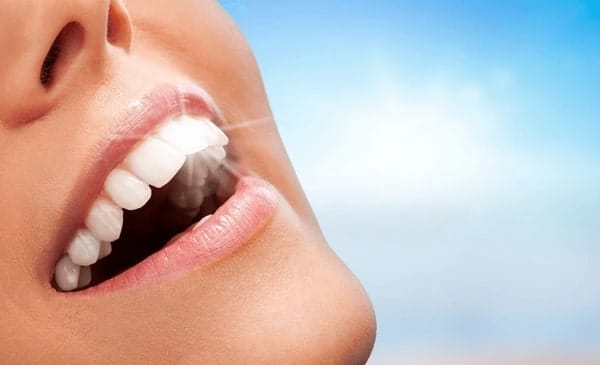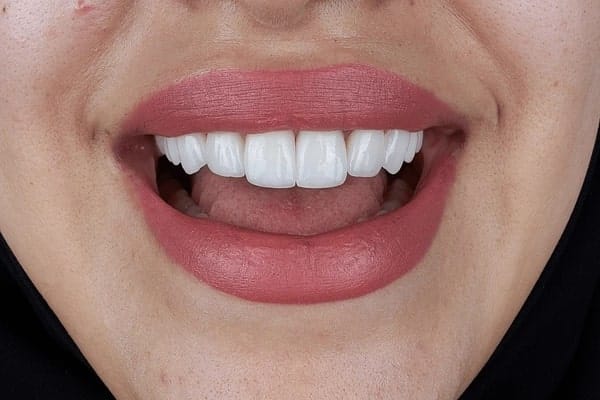Oral hygiene is a critical component of overall health, and adopting a good oral care routine not only ensures your teeth and gums remain healthy, but also contributes to your general well-being. Poor oral hygiene can lead to various dental problems, such as gum disease, tooth decay, and even heart disease. Fortunately, by incorporating simple but effective habits into your daily routine, you can drastically improve your oral health and maintain a bright, confident smile for years to come.
Why is Oral Hygiene Important?
Maintaining oral hygiene helps prevent the buildup of plaque—a sticky film of bacteria that forms on your teeth. Plaque can lead to cavities, gum disease, and other oral health issues. If plaque is not removed regularly, it hardens into tartar, which requires professional cleaning to remove. Additionally, poor oral hygiene is associated with an increased risk of developing systemic health conditions such as diabetes, heart disease, and stroke.
A daily oral hygiene routine that involves brushing, flossing, and regular dental check-ups can reduce these risks, ensuring that your mouth stays healthy and free of harmful bacteria.
What Are the Basics of a Good Oral Hygiene Routine?
To maintain optimal oral hygiene, it is essential to adopt a daily routine that covers all aspects of oral care. Here are the fundamental steps that everyone should follow:
1. Brush Your Teeth Twice a Day
Brushing your teeth is the foundation of any oral hygiene routine. It is important to brush at least twice a day—once in the morning and once before bed. Brushing helps remove food particles and plaque that can accumulate on your teeth throughout the day.
- Use Fluoride Toothpaste: Fluoride helps protect your enamel, strengthens teeth, and prevents cavities.
- Proper Brushing Technique: Brush in small circular motions, and make sure to cover all areas of the teeth, including the back molars and the gums.
- Brush for 2 Minutes: Spend at least two minutes brushing, ensuring that each part of your mouth is thoroughly cleaned.
- Choose a Soft-Bristled Toothbrush: A soft brush is gentle on your gums and enamel but still effective in cleaning your teeth.
2. Floss Daily
Flossing is essential for removing food particles and plaque from between your teeth, areas where a toothbrush may not reach. It also helps prevent gum disease by reducing plaque buildup along the gum line.
- Use Dental Floss or an Interdental Brush: Choose the tool that works best for your teeth. If your teeth are tightly spaced, dental floss is ideal. If you have wider spaces between your teeth, interdental brushes may work better.
- Floss Gently: Be careful not to snap the floss, as it can damage your gums. Gently slide it between your teeth and curve it to fit the shape of each tooth.
3. Rinse with Mouthwash
Mouthwash is an excellent way to reach areas in your mouth that brushing and flossing might miss. It also freshens your breath and kills bacteria that can cause plaque buildup.
- Choose an Alcohol-Free Mouthwash: Alcohol-free mouthwash is gentler on your mouth and does not dry out the soft tissues inside your mouth.
- Use Mouthwash After Brushing and Flossing: This ensures that any remaining bacteria are killed, and your mouth is left fresh and clean.
4. Clean Your Tongue
The tongue can harbor bacteria that contribute to bad breath and other oral health issues. Using a tongue scraper or the back of your toothbrush to gently clean your tongue can remove this bacteria.
- Use a Tongue Scraper: A dedicated tongue scraper is effective at removing the layer of bacteria that forms on the tongue.
- Brushing the Tongue: Alternatively, you can use the back of your toothbrush to clean the tongue, brushing from the back to the front.
5. Visit Your Dentist Regularly
Regular dental check-ups are essential for maintaining good oral health. Your dentist can detect issues such as cavities, gum disease, or even oral cancer in their early stages, when treatment is most effective.
- Professional Cleaning: Even with good oral hygiene habits at home, plaque and tartar can still accumulate in hard-to-reach areas. A dental cleaning every six months will help keep your teeth clean and healthy.
- Preventive Care: Your dentist may recommend treatments like fluoride applications or sealants to help prevent future dental issues.
Additional Tips for Improving Oral Hygiene
While brushing, flossing, and visiting the dentist regularly are the core of a healthy oral hygiene routine, there are additional habits and lifestyle choices that can further enhance your oral health:
- Drink Plenty of Water: Staying hydrated helps wash away food particles and bacteria from your mouth, reducing the risk of tooth decay.
- Limit Sugary Foods and Drinks: Sugar feeds the bacteria in your mouth that contribute to plaque formation and cavities. Reducing your intake of sugary snacks and drinks is beneficial for your teeth.
- Use a Mouthguard if Necessary: If you grind your teeth at night or play contact sports, a custom-fitted mouthguard can help protect your teeth from damage.
- Quit Smoking: Smoking can contribute to gum disease, bad breath, and tooth discoloration. Quitting can significantly improve both the appearance and health of your mouth.
What Products Can Help Improve Oral Hygiene?
| Product | Purpose | Benefits | Recommendation |
| Toothbrush (manual) | Removes plaque and debris | Affordable, easy to use | Choose soft bristles to prevent gum damage |
| Electric toothbrush | Efficient plaque removal | Removes plaque more effectively | Ideal for those with difficulty brushing manually |
| Floss | Cleans between teeth | Prevents cavities, gum disease, and plaque buildup | Use waxed floss for easier glide between teeth |
| Mouthwash | Freshens breath, kills bacteria | Fights bacteria, reduces plaque buildup | Look for fluoride-containing, alcohol-free mouthwashes |
| Tongue scraper | Removes bacteria from the tongue | Reduces bad breath, improves overall hygiene | Use daily for best results |
| Dental picks/interdental brushes | Clean between teeth | Effective for larger gaps between teeth | Choose based on personal preference |
Palm Beach Dental’s Commitment to Your Oral Health
At Palm Beach Dental, we believe in providing the highest level of care to our patients. Our team is dedicated to helping you maintain the best oral hygiene practices and keep your smile healthy. With state-of-the-art equipment and a team of skilled professionals, Palm Beach Dental offers comprehensive preventive care, ensuring that your teeth and gums stay in top condition. Whether you’re in need of a routine check-up, professional cleaning, or advice on improving your oral hygiene routine, we’re here to help.
Frequently Asked Questions
Q1. How often should I brush my teeth?
It is recommended to brush your teeth at least twice a day—once in the morning and once before bed. This helps remove plaque and prevent the buildup of harmful bacteria.
Q2. Why is flossing so important?
Flossing helps remove plaque and food particles from between your teeth, areas that brushing alone cannot reach. Regular flossing can significantly reduce your risk of cavities and gum disease.
Q3. Can mouthwash replace brushing and flossing?
No, mouthwash should be used as a supplement to brushing and flossing, not a replacement. It helps kill bacteria and freshen your breath but does not remove plaque as effectively as brushing and flossing.
Q4. How do I choose the best toothbrush?
Choose a soft-bristled toothbrush, as it is gentle on your gums and enamel. If you struggle with manual brushing, an electric toothbrush may be more effective at removing plaque.
Q5. How often should I visit the dentist?
You should visit your dentist every six months for a routine check-up and professional cleaning. This ensures that any potential issues are caught early, preventing more serious dental problems.
Q6. How can I protect my teeth from damage if I grind them at night?
If you grind your teeth at night, your dentist may recommend a custom mouthguard to protect your teeth from damage and prevent unnecessary wear.


